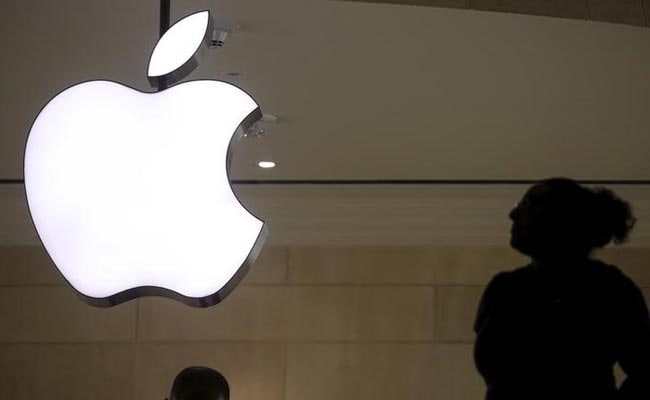
It is the first time Apple had objected to law enforcement efforts to utilize search warrants to get the tech company to provide assistance.
A federal judge in Brooklyn, New York, on Monday rejected a U.S. Justice Department request to order Apple Inc to help law enforcement access data on a locked iPhone, in a ruling that bolsters the company's arguments in a growing privacy fight with the government.
The government sought access to the phone in October, months before a judge in California ordered Apple to give the government access to the phone used by one of the shooters in the San Bernardino, California, attacks.
U.S. Magistrate Judge James Orenstein in Brooklyn ruled that he did not have the legal authority to order Apple to disable the security of an iPhone seized during a drug investigation.
The Justice Department is "disappointed" in Orenstein's ruling and plans to ask a higher judge within the same federal district to review the matter in coming days, a department representative said.
Though the defendant in the case has already pleaded guilty, the Justice Department still believes the phone may contain evidence that "will assist us in an active criminal investigation," the official said.
When fighting the government's order to help extract data from the iPhone, Apple had argued that being forced to do so "could threaten the trust between Apple and its customers and substantially tarnish the Apple brand," according to court records.
Orenstein said his ruling in Apple's favour was not a decision on "whether the government should be able to force Apple to help it unlock a specific device; it is instead whether the All Writs Act resolves that issue and many others like it yet to come."
The implications of the government's position are "so far-reaching... as to produce impermissibly broad results," he wrote.
Prosecutors have said that since 2008, Apple has complied with 70 such court orders based on the All Writs Act, a 1789 statute that grants federal courts broad power to issue "necessary or appropriate writs," without objection.
The case before Brooklyn was, according to prosecutors, the first time Apple had objected to law enforcement efforts to utilize search warrants to get the tech company to provide assistance and unlock iPhones seized during investigations.
But since October, when Apple first asked Orenstein to deny the government's request, Apple has objected to helping law enforcement access at least 12 devices for which the U.S. Justice Department has sought its help, according to a letter from Apple to Orenstein that was unsealed earlier this month.
(This story has not been edited by NDTV staff and is auto-generated from a syndicated feed.)
The government sought access to the phone in October, months before a judge in California ordered Apple to give the government access to the phone used by one of the shooters in the San Bernardino, California, attacks.
U.S. Magistrate Judge James Orenstein in Brooklyn ruled that he did not have the legal authority to order Apple to disable the security of an iPhone seized during a drug investigation.
The Justice Department is "disappointed" in Orenstein's ruling and plans to ask a higher judge within the same federal district to review the matter in coming days, a department representative said.
Though the defendant in the case has already pleaded guilty, the Justice Department still believes the phone may contain evidence that "will assist us in an active criminal investigation," the official said.
When fighting the government's order to help extract data from the iPhone, Apple had argued that being forced to do so "could threaten the trust between Apple and its customers and substantially tarnish the Apple brand," according to court records.
Orenstein said his ruling in Apple's favour was not a decision on "whether the government should be able to force Apple to help it unlock a specific device; it is instead whether the All Writs Act resolves that issue and many others like it yet to come."
The implications of the government's position are "so far-reaching... as to produce impermissibly broad results," he wrote.
Prosecutors have said that since 2008, Apple has complied with 70 such court orders based on the All Writs Act, a 1789 statute that grants federal courts broad power to issue "necessary or appropriate writs," without objection.
The case before Brooklyn was, according to prosecutors, the first time Apple had objected to law enforcement efforts to utilize search warrants to get the tech company to provide assistance and unlock iPhones seized during investigations.
But since October, when Apple first asked Orenstein to deny the government's request, Apple has objected to helping law enforcement access at least 12 devices for which the U.S. Justice Department has sought its help, according to a letter from Apple to Orenstein that was unsealed earlier this month.
© Thomson Reuters 2016
(This story has not been edited by NDTV staff and is auto-generated from a syndicated feed.)
Track Latest News Live on NDTV.com and get news updates from India and around the world

